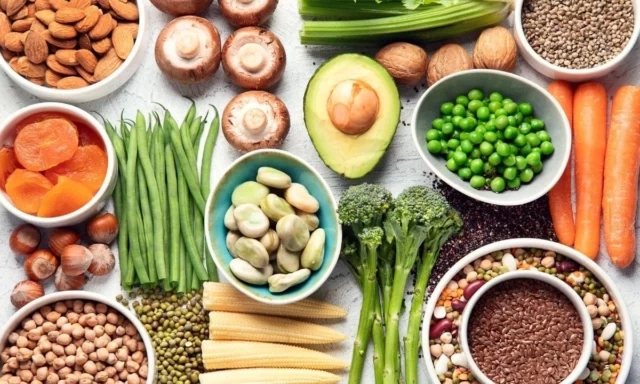Plant proteins are substances obtained from plants. Legumes, grains, vegetables, and greens produce these organic compounds that have numerous health benefits.
What many people do not know is that there are also vegetable proteins in other formats, such as food supplements, which allow reaching the recommended intake of these substances in order to maximize all the benefits they provide to the body. Next, we will explain their importance and how to incorporate them into the diet.
What are vegetable proteins? What is their importance?
Vegetable proteins are those natural substances that we can obtain from legumes, cereals, vegetables and greens, in addition to food supplements that incorporate them among their ingredients. The thing about these compounds is that, with the exception of quinoa and soybeans, the plants that contain them do not understand all the essential amino acids. This means that you have to consume a protein combination to achieve its maximum benefits.
Proteins are the nutrients that are responsible for growth, muscle development and repair of all tissues and organs that are part of the human body. Therefore, its importance for our well-being is vital. Now, we have already said that not all vegetable protein sources contain the essential amino acids that the body needs to function properly. That is why it is essential to combine them to consume a complete diet.
How to incorporate all vegetable proteins into the diet?
There are many different diets that are based on the consumption of vegetables. The flexitarian diet, which promotes the occasional consumption of foods of animal origin in a diet in which vegetables predominate, is a good example of this.
Now, there is no need to overwhelm yourself with different diets. On the contrary, it is enough to make sure that all the plants that are part of the vegetarian diet are included in the meals to be able to incorporate the nine essential amino acids. Likewise, it is very convenient to consume a food supplement to ensure that you obtain all the vegetable proteins that the body needs to achieve its maximum well-being.

Benefits of vegetable proteins
To better understand the importance of vegetable protein in our body, we share some of their benefits:
• They are very easy to digest and provide fibers that contribute to the proper functioning of the digestive system.
• They promote the proper functioning of the cardiovascular system.
• They reduce the risks associated with cancer.
• Unlike excessive consumption of animal proteins, they are not detrimental to the proper functioning of the kidneys and liver.
• They improve your muscle health.
Vegetable proteins are those that are obtained from plants. These substances contain the amino acids that the body needs to achieve its well-being. However, with the exception of quinoa and soybeans, they do not contain all the essential nutrients, so different foods must be combined in the diet and food supplements must be incorporated in order to obtain all their benefits. Among them, the proper functioning of the cardiovascular system and muscle health stand out.

